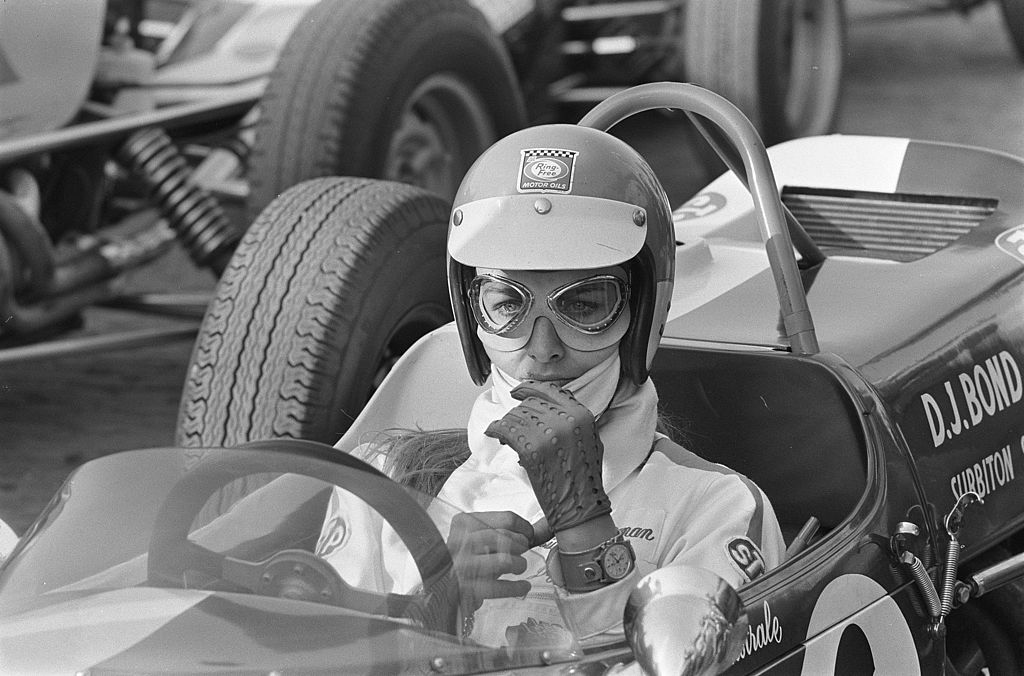The Role of Women in Automotive and Motorsport

Picture this: a woman stepping into a male-dominated industry, walking a path carved by the grit and resilience of those who came before her. The expectation? That she is a trailblazer, forging new ground. The reality? The trail was blazed long ago—by the Bertha Benzes, the Lella Lombardis, the Pat Mosses of history. Today’s women are not pioneers in the traditional sense; they are inheritors of a legacy, positioned not at the frontier but at the threshold, holding the lantern for those behind them.
Yet, somewhere along the way, the role of the established woman in these industries has shifted. Instead of illuminating the path, some have become gatekeepers—consciously or unconsciously deciding who is “worthy” of entry. The question we must ask is: Have we forgotten the purpose of being here?
The Myth of the Modern Trailblazer
Women have been working in automotive and motorsport for over a century, but many today still view themselves as pioneers. This narrative, while inspiring, is historically inaccurate. Take Bertha Benz, who in 1888 undertook the first-ever long-distance drive, proving the viability of the automobile. Or Pat Moss, who dominated rallying in an era when women were barely considered contenders. These women didn’t just fight for recognition—they did the work, often without acknowledgment or permission.
Fast forward to today. Women hold executive positions in car manufacturers, race in elite competitions, and lead engineering teams. The road is still challenging, but it is no longer unmapped. The challenge now is not to forge the trail but to ensure that it remains open and accessible to the next generation.
Gatekeeping vs. Guiding: Where We Went Wrong
There was a time when being one of the only women in the room meant survival at all costs. It meant proving yourself constantly, working twice as hard for half the recognition, and accepting that your mere presence was seen as exceptional. The instinct to guard one’s hard-earned position is understandable—but it is not productive.
Somewhere along the way, gatekeeping crept in. Instead of pulling others up, some women began measuring newcomers against an arbitrary standard: Have they struggled enough? Are they tough enough? Do they deserve it?
We see this in racing teams, where a young woman enters as a mechanic and faces skepticism—not from men, but from women who had to claw their way up. We see it in executive boardrooms, where established women fear being overshadowed rather than supported by younger talent. We see it in motorsport paddocks, where female drivers are judged more harshly by their predecessors than by their male competitors.
The shift from pioneer to gatekeeper is often unconscious. It stems from internalised bias, fear of being replaced, or even frustration that the next generation has opportunities that didn’t exist before. But the point of progress is not to guard entry—it’s to ensure that those who follow have an easier journey than we did.
Why Does This Happen?
The tendency to gatekeep rather than guide is not random—it’s rooted in psychology, identity, and culture. Here’s a deeper dive into the contributing factors:
1. Desire for Superiority and Control
Some individuals gain a sense of satisfaction from being seen as the expert or the exception. This sense of superiority can become an identity, one they’re reluctant to share. In this frame, helping others feels like surrendering power or diminishing their unique value.
2. Insecurity and Inferiority Complex
Those who’ve been made to feel like imposters or outsiders may overcompensate by asserting authority over others. Gatekeeping becomes a way to validate their place—by making sure no one else can question it.
3. In-Group vs. Out-Group Mentality
Humans instinctively build in-groups to feel safe and affirmed. In a space where women are still outnumbered, some may view new arrivals as threats to their fragile hold. They protect their in-group status by excluding or challenging those they don’t feel belong.
4. Jealousy and Fear of Obsolescence
Jealousy can quietly poison collaboration. Watching someone younger, more confident, or better supported rise quickly through the ranks can spark resentment. Instead of celebrating progress, gatekeepers may cling tighter to their role, viewing it as a zero-sum game.
5. Poor Psychological Functioning and Perfectionism
Higher levels of neuroticism or perfectionism can also drive gatekeeping. Those who feel a constant pressure to perform might impose similar expectations on others, holding them to unrealistic standards just to validate their own struggle.
Are You Holding the Lantern or the Gate?
It’s easy to believe we are helping when, in reality, we may be hindering. So, ask yourself:
- Do you mentor or test newcomers?
- Do you advocate for women who show promise, or do you wait for them to “prove” themselves first?
- Do you assume the worst when a woman enters your field, or do you give her the same benefit of the doubt you wish you had been given?
No one wants to think of themselves as a gatekeeper. But the only way to change is to be honest about where we stand.
How We Move Forward
The women who came before us didn’t fight for exclusivity; they fought for inclusion. Our role is not to judge who is worthy but to ensure that the path remains open.
Mentorship Over Competition
Mentorship should not be reserved for those who remind us of ourselves. Seek out talent in all forms. The best mentors don’t just lift up those who fit their mold—they expand the definition of who belongs.
Challenge Your Own Biases
It’s easy to blame external forces for inequality, but real change starts within. Check your assumptions. Are you being fair, or are you upholding outdated standards that don’t serve the next generation?
Advocate for Systemic Change
Individual mentorship is powerful, but it is not enough. Advocate for structural changes that make industries more inclusive—whether that’s pushing for equal pay, better training opportunities, or calling out biases in hiring practices.
Recognise That True Leadership is Collective
The strongest leaders are not those who stand alone at the top. They are the ones who look around and realise they are surrounded by others who share their vision.
The Legacy We Leave
We do not need more gatekeepers. What we need are women who hold the lantern high, making the path visible for those behind them. The goal is not to ensure that every woman struggles as much as we did—but to make sure they don’t have to.
Trailblazing was never meant to be a permanent state. If we are still fighting for the same ground as the women who came before us, we have failed them. True progress is measured not by how hard we fought to get here, but by how easy we make it for the next generation to follow.


Bridget Bell is a seasoned motorsport media professional and a skilled mechanic, with over a decade of experience in On-Air Hosting, Event Hosting, Television Presenting and Commentating. Passionate about supporting women in both the industry and motorsport, Bridget volunteers as a mentor and actively champions female representation.
Disclaimer: While due research has been conducted, the views expressed in our articles are those of the author and may not necessarily reflect everyone’s views. If you notice an error, please email quoting the blog article title and an explanation of the error.

